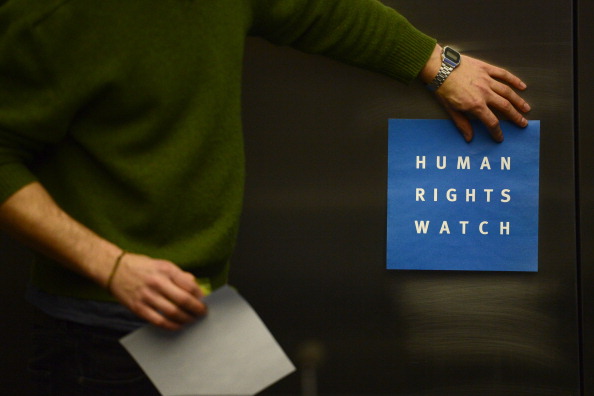Nairobi – Kenya’s failure to hold police accountable for allegedly killing dozens after the 2017 elections heightens the risk of officers abusing their power when the country heads to the polls next week, Human Rights Watch (HRW) said on Tuesday.
The rights watchdog said authorities had failed to investigate accusations of police brutality or institute reforms, raising the threat of violence if the results of next week’s elections are disputed.
“The failure to tackle police abuse in previous Kenyan elections risks emboldening them to continue their misconduct around this year’s general election,” HRW’s director for East Africa, Otsieno Namwaya, said.
Kenya’s police is often accused by rights groups of using excessive force and carrying out unlawful killings, especially in poor neighbourhoods.
They have also been accused in the past of running hit squads targeting those – including activists and lawyers – investigating alleged rights abuses by police.
HRW said it had documented the alleged killing of at least 104 people by the police during the last election in 2017, mostly supporters of then opposition leader Raila Odinga.
ALSO READ | ‘A dirty game’: Young Kenyans shun election hype
Heavily-armed police officers were deployed to disperse demonstrators after Odinga refused to accept President Uhuru Kenyatta’s victory.
“With just seven days to another general election, Kenyan authorities have yet to take steps to ensure justice for police abuses that characterized the 2017 general elections,” the rights group said.
On August 9, Kenyans will elect a new president as well as hundreds of members of parliament and about 1,500 county officials.
This year’s presidential vote is largely a two-horse race between Deputy President William Ruto and Odinga, who is now backed by Kenyatta and the ruling party.
With its diverse population and large ethnic voting blocs, Kenya has long suffered politically motivated communal violence around election time, notably after a 2007 poll when more than 1,100 people died, scarring the nation’s psyche.
HRW said it had interviewed activists, government officials, police officers and victims’ families who worried law enforcers “would respond abusively” to any violence or public protests if disputes arose after next week’s vote.
Follow African Insider on Facebook, Twitter and Instagram
Source: AFP
Picture: Getty Images
For more African news, visit Africaninsider.com


